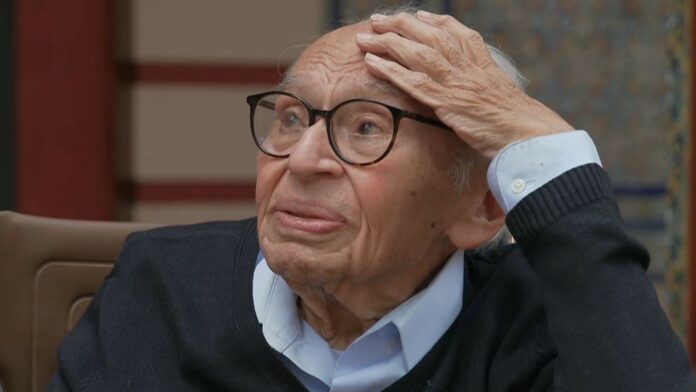ROME – In February 2014, a scene unfolded in Rome that struck many observers as akin to the end of history. A conservative German prefect of the Congregation for the Doctrine of the Faith sat on a Vatican stage, sporting a Peruvian poncho and showering praise upon the father of liberation theology in Latin America — a man who, once upon a time, was virtually the Vatican’s Public Enemy Number One.
That Roman night, which united Cardinal Gerhard Müller with his longtime friend Father Gustavo Gutiérrez, marked an official rehabilitation of sorts for Gutiérrez. The outcome later was given an exclamation point when Pope Francis sent the aging Dominican a note praising his “theological service” on the occasion of his 90th birthday in June 2018.
Gutiérrez, who died Oct. 22 at the age of 96, was an icon of 20th century Latin American Catholicism, and for decades, reactions for or against Gutiérrez’s pioneering theology marked the primary fault lines in the church on the continent.
We got a reminder of the point just three days before Gutiérrez’s death, when Cardinal-elect Carlos Gustavo Castillo Mattasoglio of Lima, Peru, published a newspaper piece highly critical of the Sodalitium Christianae Vitae, a lay group in Peru, among other things blaming the group and its founder for what Castillo called an “unjust persecution” and “insane response” to Gutiérrez.
“They considered him a leftist,” Castillo wrote. “Instead, he was just a man open to the Gospel and the signs of the times, who updated the faith for our poor and deeply religious continent.”
It all began in 1968, when a 40-year-old Gutiérrez acted as an advisor to an assembly of the Latin American bishops in Medellín. Afterwards he wrote a book born in part of that experience, which was originally slated to be called “Towards a Theology of Development” but eventually became “Toward a Theology of Liberation.”
The book was published in 1971, and thereby gave a name to what would become the defining post-Vatican II impulse in the Latin American church.
As controversies over liberation theology built in the 1980s, it was inevitable that Gutiérrez would become a target. In 1983, then-Cardinal Joseph Ratzinger, the future Pope Benedict XVI, wrote to the Peruvian bishops asking them to investigate Gutiérrez. Ratzinger cited several alleged problems in Gutiérrez’s work, including an allegedly Marxist view of history, a selective reading of the Bible to focus on material redemption, and a class-driven concept of theology.
The bishops were divided, but seemed prepared to issue some sort of negative verdict until a last-minute intervention came from the legendary German Jesuit theologian Father Karl Rahner, just two weeks before his death at the age of 80.
“I am convinced of the orthodoxy of the theological work of Gustavo Gutiérrez,” Rahner wrote. “The theology of liberation that he represents is entirely orthodox. A condemnation of Gustavo Gutiérrez would have, it is my full conviction, very negative consequences … Today there are diverse schools and it has always been thus … It would be deplorable if this legitimate pluralism were to be restricted by administrative means.”
Read it all in Crux



